Ethiopia
Ethiopia has the second largest population in Africa, behind Nigeria. In the last two decades, there have been improvements in the standard of living. But poverty remains a challenge. 25% of people live on less than US$1.90 per day. The country is ranked 176 out of 191 countries in the UN Human Development Index.
80% of people in Ethiopia live in rural areas with extremely limited access to healthcare. Ethiopia has just one doctor for every 10,000 people. There is a lack of both infrastructure and skilled staff to meet the needs of the population.
Leprosy rates remain high and 2,966 new cases of leprosy were reported in 2022. More than 10% of these new cases were children.
Achievements in Ethiopia 2024

63 people benefitted from an innovative ulcer healing technique

27 government health workers were trained to teach other health professionals about leprosy

3,923 people heard educational messages about leprosy
Healthcare
We work with The Leprosy Mission International Ethiopia to improve healthcare in the Amhara region. We are training health workers to diagnose and treat leprosy, and to manage complications like ulcers.
We also train faith leaders, traditional healers, local organisations, and communities to recognise the signs of leprosy. We are working with these groups to combat stigma, teach self-care, and prevent disability.
Ulcers are a particular risk for people affected by leprosy. When people lack access to clean water or proper healthcare, they can easily become infected. In the worst cases, amputation may be the only solution.
In 2023, The Leprosy Mission Nepal partnered with The Leprosy Mission International Ethiopia to deliver specialist ulcer care training to medical professionals at ALERT Hospital in Addis Ababa. To date, more than a hundred patients have received this life-changing treatment.